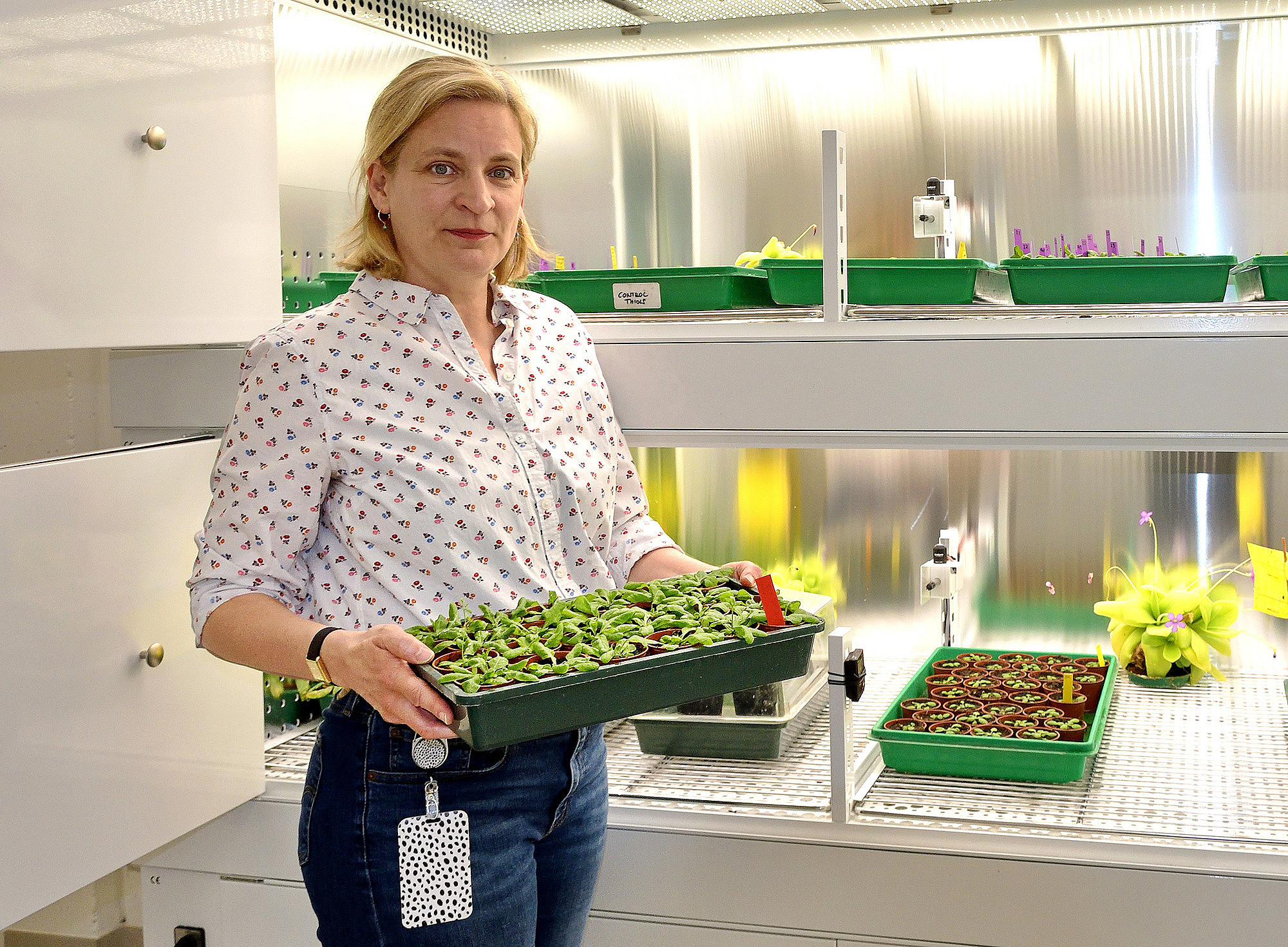The growth cycle of plants is influenced by a number of external conditions, above all temperature and sunlight. However, there are also internal controlling factors. These include the plant hormone cytokinin. “Cytokinin promotes flowering in both long and short days, with a particularly strong effect when there are only a few hours of daylight,” reports Isabel Bartrina, first and corresponding author of a current publication on this topic.
The plant physiologist from Tomáš Werner's research group at the University of Graz has investigated how cytokinin regulates flowering. “The strongest influence is exerted by specific forms of the hormone that are produced in the root: the so-called trans-zeatin,” says Bartrina. “If its transport is disrupted, flowering is delayed. These results reveal a surprising and hitherto little-noticed role of the roots in flowering induction.”
Cytokinin influences the levels of the microRNA molecules miR156 and miR172, which regulate the ageing process. “The higher the cytokinin level, the faster the plant matures, so to speak. Only when it has reached this stage can it flower,” explains the researcher. If the hormone is missing, flowering is delayed. The scientists used thale cress (Arabidopsis thaliana) as a model for their investigations.
The new findings could be used to breed crops whose flowering time needs to be adapted to climatic conditions or other requirements. This could be to avoid damage from late frosts or to ensure optimal pollination by bees.
Publication
Root-derived cytokinin regulates Arabidopsis thaliana flowering time through components of the age pathway
Plant Physiology
https://doi.org/10.1093/plphys/kiaf204
